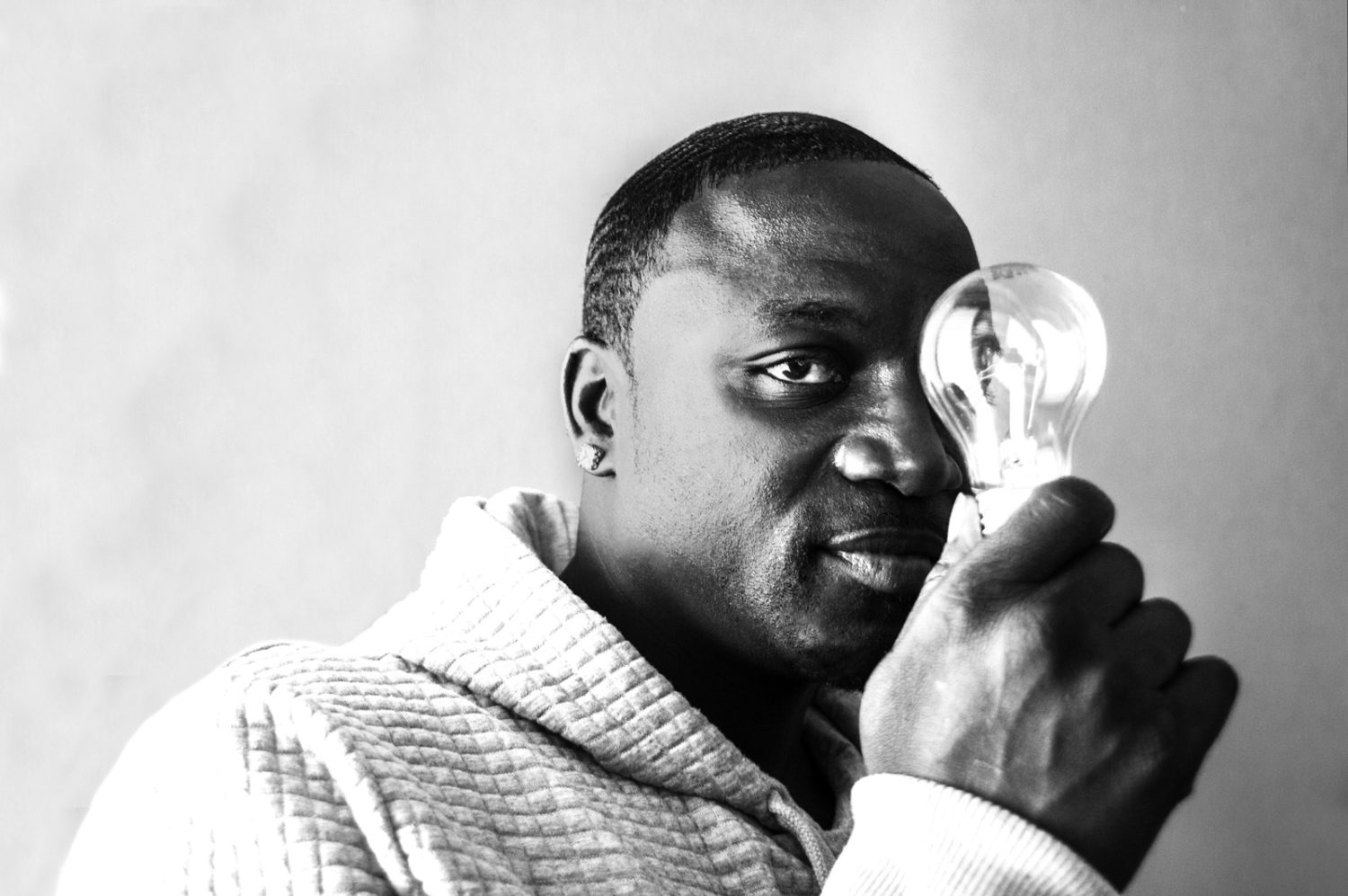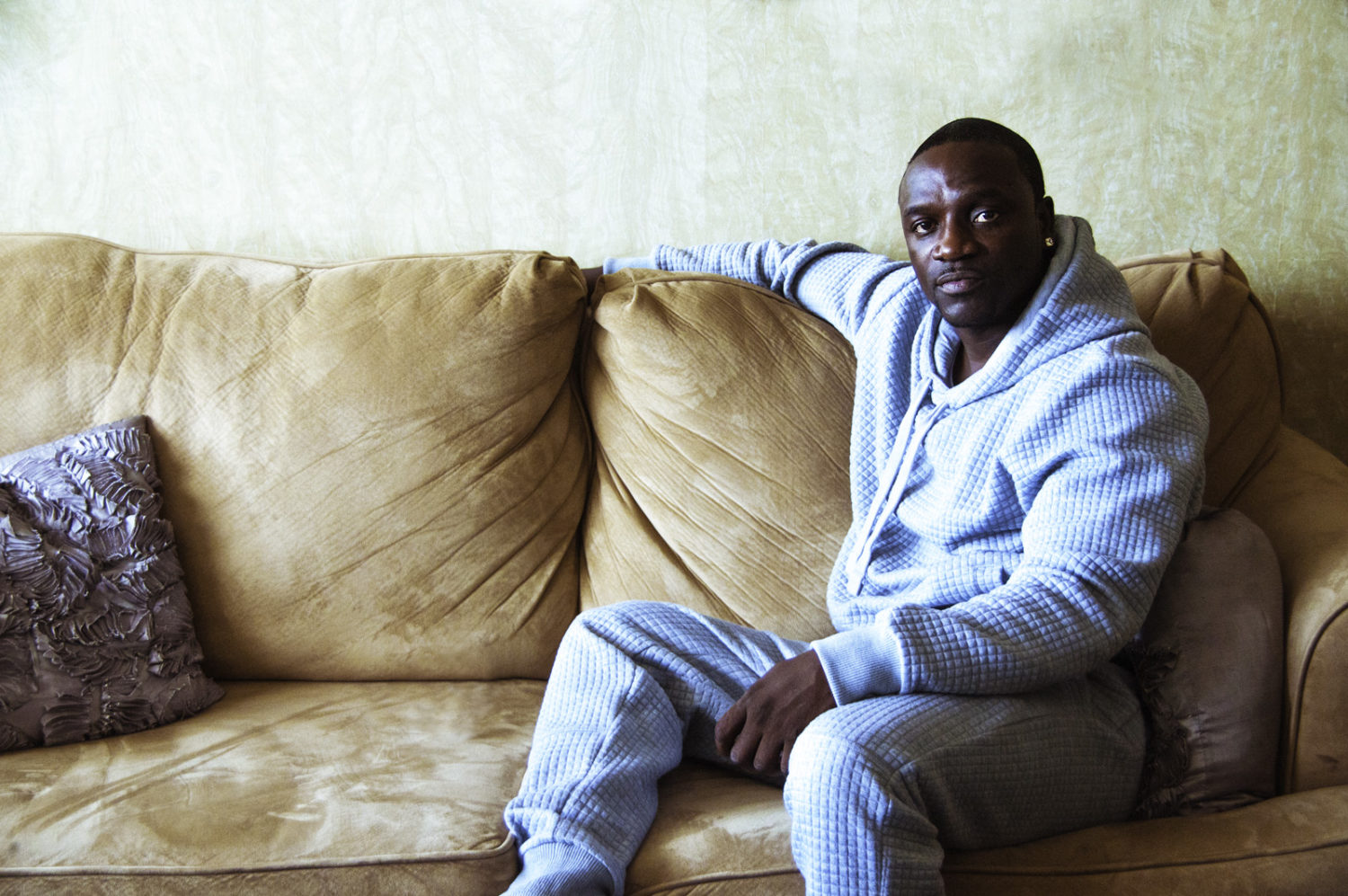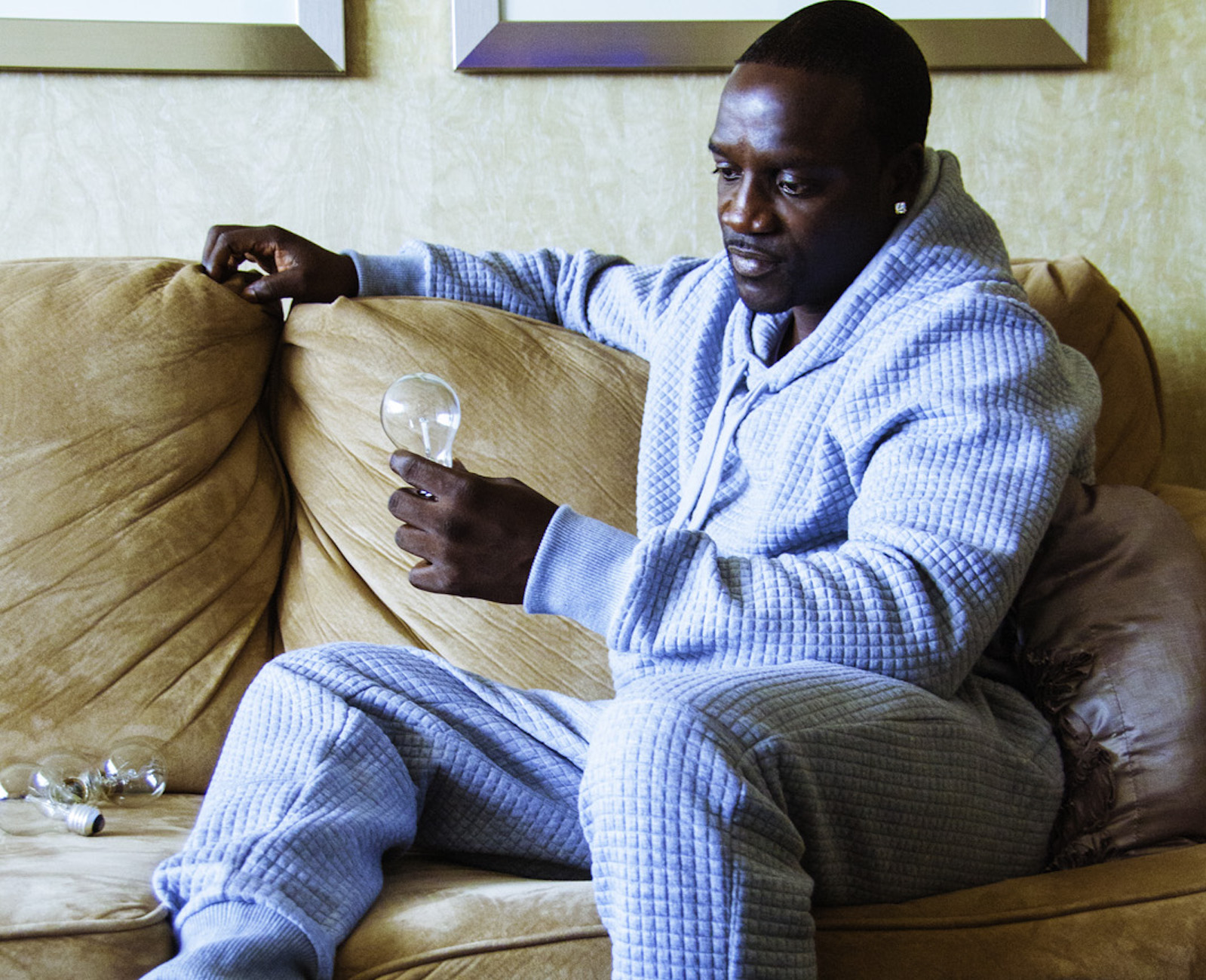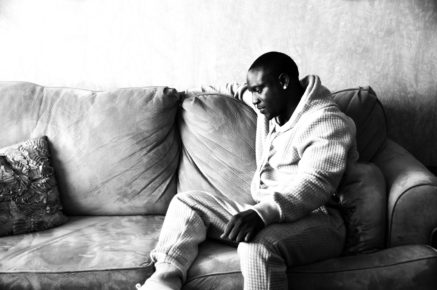“I never really even asked myself that,” says Akon, with a reflective pause. The question is to the point, blunt, probing in its quest to understand the artist’s end goal: “When will you be satisfied?” To gain a grasp of what drives Akon is to obtain a consumable measure of his accomplishments. With his posture leaned into a likeness of calm, he dawns a near permanent smile that welcomes unfiltered conversation. His answer is surprisingly contrarian. “I never thought about that actually. It’s not like there’s a particular goal that I’m aiming to get at,” says the singer who has won a Billboard Music, Teen Choice and American Music award and released chart-topping singles. “It all just started with me trying to stay out of trouble, then it started with me trying to stay busy. Then it started with me trying to get rich. Then it started with me trying to keep the money that I made.”
The man is just coolly honest, with an earthly air that helps dispel the assumption that fame makes him untouchable. For the St. Louis, Missouri born superstar, who spent several of his formative childhood years in his parents’ home city of Dakar, Senegal, success has become an outcome with wealth being the product of that achievement.
“One thing I realized is that if I didn’t make good music, I [wouldn’t make any] money. So, that was all just the focus, to make the right music so that I could utilize that to get to the money,” he says, without prettying his words, leaning back further on a soft beige couch. The penthouse walls of downtown Toronto’s posh Westin Harbour Castle speaking truths to that fact. “Once you get to the money, you want to be able to put it in a place to where not only are you helping people, but it can also multiply too.”
Whether epitomized through the known collaborations that anchored his celebrity — Whitney Houston, Lionel Richie, Michael Jackson, Gwen Stefani, Eminem and Snoop Dogg to name a few — or the numerous individual awards he’s won, including five Grammy nominations, personal prosperity hasn’t been a trait particularly lacking for Akon over the years. Recently, personal goals have become far less individualistic, goaded by responsibility from a home-grown sense.

“I didn’t want to approach Africa as a charity because I already felt like it’s been done so many times.”
Electricity. It’s a commodity that’s easily taken for granted by those living in the western world, where light emitted from a smart phone, tablet or fixture comes as effortlessly as running tap water for most. In contrast with parts of Africa, it is a figurative difference between night and day. Over 600 million Africans still don’t have access to electricity. A lack of power in certain regions often encourages hazardous methods to produce light and heat. Consequently, over 3.5 million deaths are caused each year from injury by using toxic solid fuels. To combat this, Akon Lighting Africa was formed. It’s an initiative collectively founded by Samba Bathily, Thione Niang and Akon to provide power to millions, while avoiding the traps typical of traditional methods of philanthropy that utilize foreign labour and operate solely non-governmental organizations.
“I didn’t want to approach Africa as a charity because I already felt like it’s been done so many times and it didn’t work,” he says. “So Akon Lighting Africa is a for-profit business and the idea is to not just give, we want to go in and empower people. It’s to create jobs and put them in a position to create employment so that they could feed their own families.”
The fruits of these statements have moved beyond just words for the organization based out of Mali, West Africa and New York City; the profits go to African-based banks to be re-invested into projects on the ground. As of 2016, 100,000 solar street-lamps have been installed along with 200,000 household electric systems and 1,000 solar micro-generators. “What’s necessary in Africa is to develop the region and rebuild the infrastructure, and you can’t begin to start doing that without power,” says Akon. “Power is the first mechanism that’s going to start the engine and start the development of Africa all together.”

“Once you get to the money, you want to be able to put it in a place to where not only are you helping people, but it can also multiply too.”
For Akon and company, there’s a pride and strategic benefit in training and hiring local workers rather than foreign contractors. A practice that is so often ignored by many foreign charities argued to be operating out of self-interest.
“You got all these foreigners coming here, having to take their 85,000 shots, they get sick within the first two weeks,” he says, shaking his head. “They don’t get any work done anyway and then half of them can’t communicate because they don’t speak the local language.” This is largely the reason why Akon says his company has been able to accomplish more in less than two and a half years than most achieve in 10 to 15 years. A lot of that comes from a confidence locals possess often lacking amongst certain foreign charities.
Trust in his own people comes easy for Akon, given his roots, but there was a level of distrust aimed in his direction from those who still view him only as a music mogul. Even during this interview, as he speaks about the topic of Africa, he balances it with promoting his Stadium release — an album he explains is a combination of the hip-hop influenced sounds of Akon’s early work and the more Euro-house vibes of his more recent hits. Music is ultimately what his name has been built on, a vocation that isn’t lost on the artist or anyone else.

“The biggest challenge I had was them just believing that I was capable enough to do it. There was this big thing about me being just a recording artist, what would I know about it,” says Akon. “It was really just convincing them that our plan, our program, what we were trying to do was the key and the solution to the problem. So, it took one country (Bamako Mali) for them to see the progress and for other countries to say, ‘you know what, let’s give it a shot.’”
Time has proven Akon’s ability to extend his accomplishments beyond the music that defined him to the progress of Akon Lighting Africa. It’s proven in the way he articulates his cause; much like the physical awards and top rankings on music charts that spoke conviction to his original artistry. This all leads back to the original question. After all this, past successes included, what continues to drive Akon?
“Oh man, I don’t know if I have drive, really, I just do what I love to do and I think that just steers me into doing what is necessary,” he says, with thinking eyes. “Some things you just know need to be done, and you just get up and do it.”
Photos © Lee Hon Bong + Urbanology Magazine




1 Comment
This is amazing! Serious empowerment